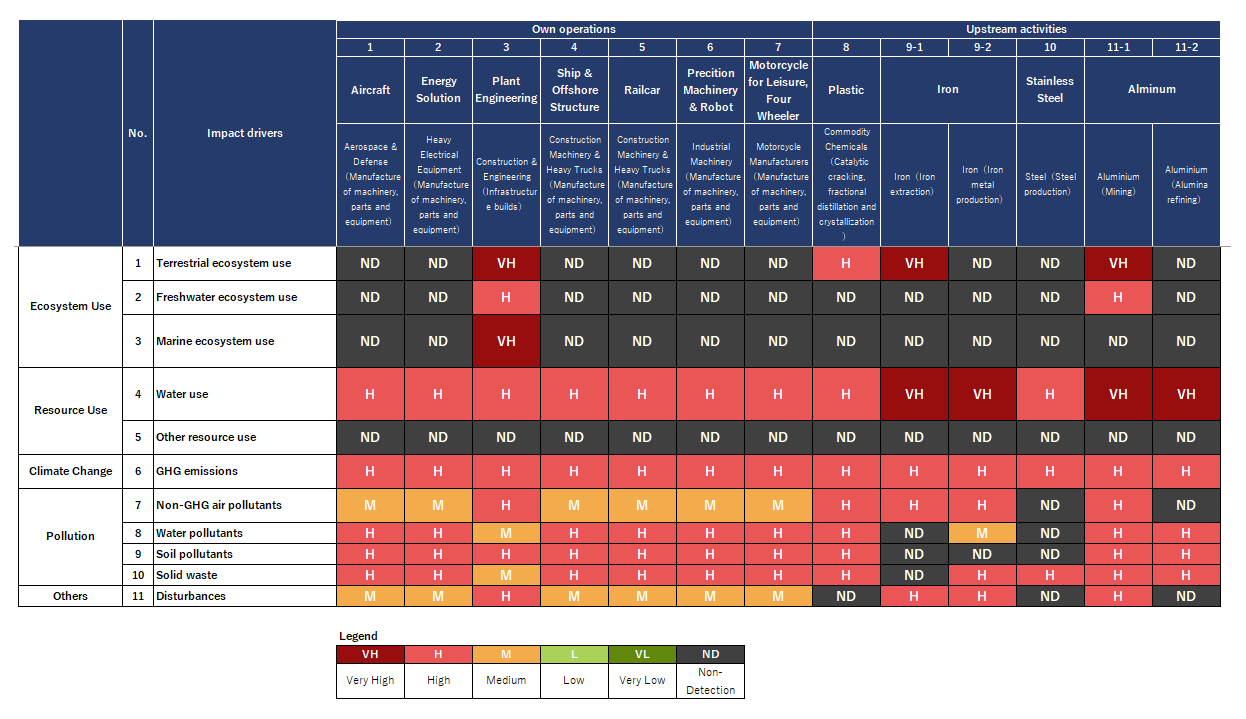Harm FREE (Realization of a Society Coexisting with Nature)
Modern society is maintained by the value provided by natural ecosystems, including material cycles and the regeneration of air, water, and soil environments. However, ecosystem services are deteriorating globally, and the World Economic Forum's Global Risk Report 2023 lists biodiversity decline as a serious risk along with climate change among the serious risks over the next 10 years.
Kawasaki Group strives to reduce its environmental impact through products and manufacturing processes that exist in harmony with the global environment and contributes to the protection of ecosystems.
In addition, we will strive to prevent pollution of the global environment by properly managing hazardous chemicals and reducing the amount used.
The Environmental Management Activities Plan 2023 (Key Strategies)
| Key Strategies of the Environmental Plan 2023 |
|---|
(a) Proper management of harmful chemical substances and consideration of alternatives
|
(b) Response to biodiversity (TNFD)
|
Harmful Chemical Substance Reduction
Kawasaki Heavy Industries, Kawasaki Railcar Manufacturing, and Kawasaki Motors properly manage and look for alternatives to chemical substances that present a risk of negatively impacting human health or the environment.
We continuously monitor emissions of hazardous chemical substances, major VOCs (toluene, xylene, and ethylbenzene), and handling volumes of dichloromethane and hazardous metals (hexavalent chromium compounds) handled, conduct appropriate chemical substance management, take action to reduce usage, and strive to prevent pollution of the global environment.
Measures to Protect Biodiversity
Understanding the Relationships between Business Activities and Biodiversity
We used ENCORE (Exploring Natural Capital Opportunities, Risks and Exposure), a tool to ascertain corporate relationships of dependence on nature and the scope of impacts, to perform risk assessment of the Group's business activities and the relationships of dependence and the scope of the impact on nature. ENCORE is a tool that assesses that portion of the supply chain directly operated by a company, but for this assessment, we conducted risk assessment not just for Group business activities, but also nearby sectors in upstream segments of the supply chain.
As a result, we determined that there are four high-risk items within dependency relationship and 10 items in impact relationships. Raw materials that the Group uses include mineral resources, such as iron and aluminum, which we use in large quantities, and GHG emissions and water use during the extraction and refining processes of these materials are high priority items. To address these items, we will conduct a detailed analysis based on the unique conditions of the regions where we actually conduct business and link the results to measures for protecting biodiversity.
Contact
If you need more information about our business,
please feel free to contact us.






